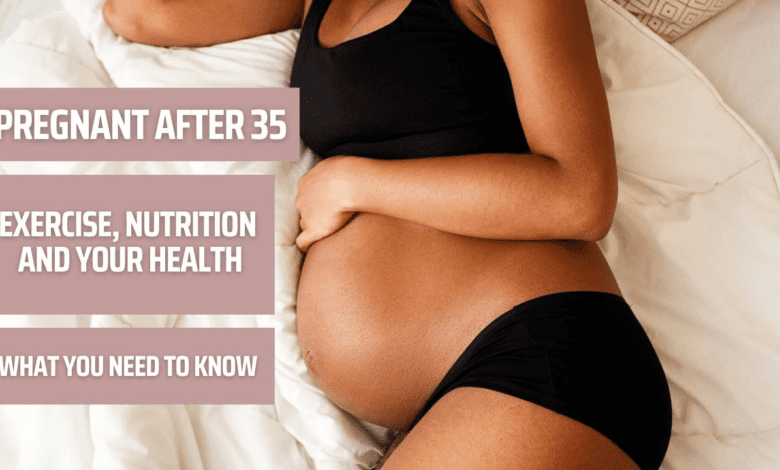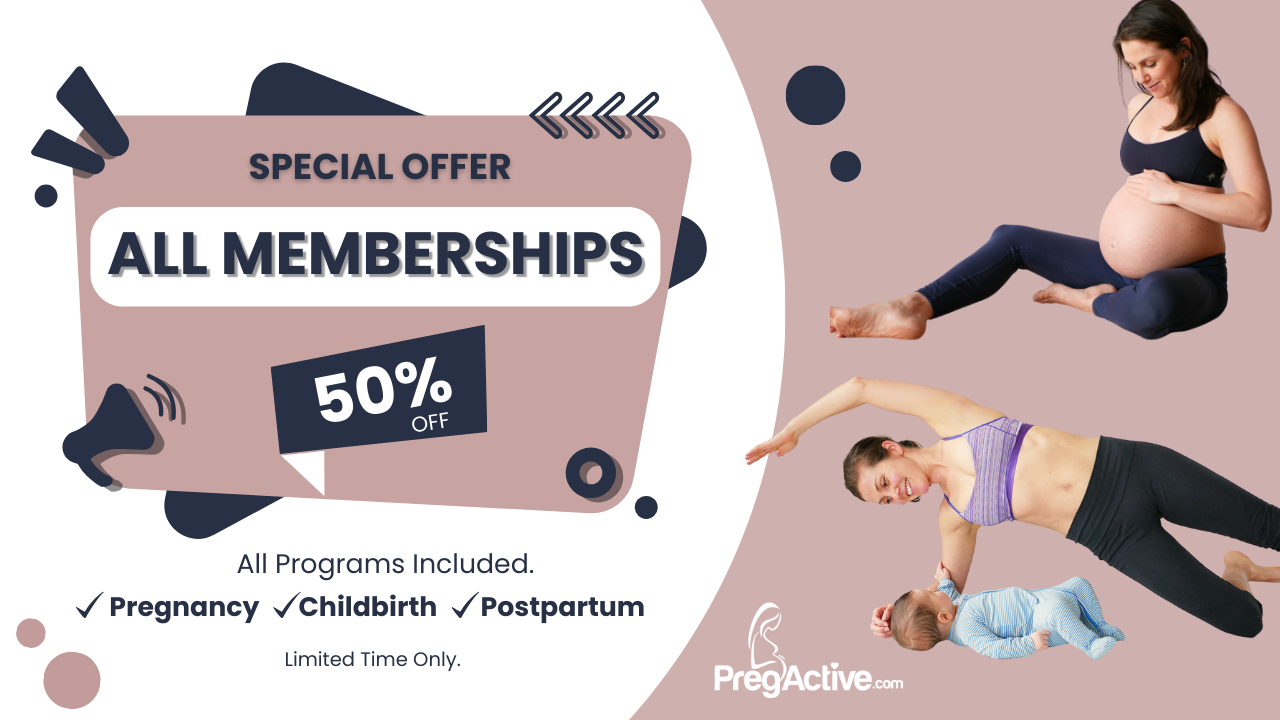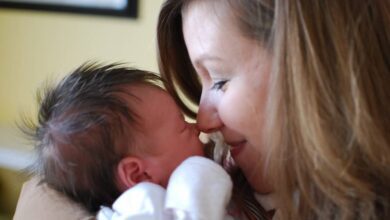Pregnancy after 35 – Exercise, Nutrition and Your Health

If you are 35 years of age or older and want to get pregnant, then your age should not be a barrier in your way of trying to get pregnant. Life happens in different ways and our timelines will vary. Getting pregnant after 35 is common, but here’s what you should know.
If you’re older than 35 and trying to conceive, you’re in good company. Getting pregnant after 35 is common because many women delay well into their 30s and beyond. And deliver healthy babies!
Did you know that the CDC published a report that found that more women in their thirties are having babies than women in their twenties? It just shows how times have changed.
What is pregnancy after 35 called?
Being pregnant over the age of 35 has several medical terms associated with it. This can be defined as ‘advanced maternal age.’
Is 35 considered advanced maternal age?
Advanced maternal age is another term used for a woman having a baby at age 35 or older.
Is pregnancy after 35 considered high risk?
Pregnancy at 35 and older is considered a “high risk” pregnancy. Why? Because overall pregnancy-related complications are higher than women in their late 30s.
But a high-risk pregnancy does not directly mean that your risk is high. In reality, your risk is still quite low, especially if you maintain a healthy lifestyle which is why being ‘PregActive’ is so important.
Getting fit and healthy before pregnancy can help ensure you enjoy a more invigorating pregnancy and staying healthy throughout your pregnancy will better prepare you for labor and encourage a faster postpartum recovery.
Is 36 too old to have a baby?
No, absolutely not. There are many women 36 years and older who are having multiple pregnancies and delivering beautiful healthy babies.
In recent generations, many women have advanced in their careers which have become the main focus of some. Some of us waited longer to decide to have children.
Do you have many questions?
When searching on Google you know what I found?
I found many common questions asked by women over 30 about having a baby and if they can.
Or what higher risk they face.
For example, here are some of the most common questions asked:
1. Is 37 too old to get pregnant?
2. Is a 37 year old a high risk pregnancy?
3. Is having a baby at 37 too old?
4. Can I have a healthy baby at 39 years old?
5. Is it OK to get pregnant at age 37?
6. Can a woman get pregnant at the age of 37?
Does any of this sound familiar?
You are not alone in the many questions you want answered.
My Experience
With over fifteen years working with pregnant women delivering prenatal exercise classes and helping women lead healthier lives; I know the importance of being healthy when trying to conceive.
Many of these questions are normal. And the answer to most of the questions you will get pregnant over 35 and enjoy a healthy pregnancy along with the delivery of healthy babies.
Through PregActive, my in-studio classes, my online programs and prenatal workout videos; I have helped hundreds of thousands of women have a fit and healthy pregnancy. And now I want to help you.
Your health and well-being are important when pregnant.

Are you over 35 years old and trying to conceive?
If you are over the age of 35 and trying to conceive, the first thing you should do is book a visit with your doctor. Your age plays a very small role in the health of your pregnancy.
But it’s still important to know your risks and take steps to improve them which is what this post is about. That is doing what you can within your control to be fit and healthy to carry a baby.
What You Should Do Before Pregnancy
Yes, it can take longer to get pregnant as you get older. You were born with all the eggs you have. By the time you’re in your mid-30s, you have fewer eggs. The eggs you have left are older and not the same as new eggs. This can make it harder for them to fertilize.
But if you are in good health, your chances of getting pregnant and having healthy babies will increase. What you do now matters when it comes to your health.
What To Do Before Getting Pregnant
1. Visit your doctor for a check-up.
You should focus on being as healthy as possible before you get pregnant. Talk to your doctor about any vaccines you need as well as talking about your health history.
Questions you may want to ask your doctor
1. Why does age put me at higher risk of complications?
2. How old is too old to have a baby?
3. What higher risk do I have if I get it? pregnant after age 35?
4. Should I get further testing to gauge my risk for complications?
5. What can I do to reduce my risks of complications such as preterm birth?
6. If the test finds that my baby has an increased risk of a chromosomal abnormality, what should I do?
2. Get treatment for existing health issues.
If you have any existing health conditions that are causing you concern, make sure they are treated. This includes physical conditions such as diabetes or high blood pressure.
3. Reduce stress.
Stress can have a negative effect on your body. Learn stress management skills before you get pregnant so that stress doesn’t affect your baby. Your mental health is important.
4. Check your medications.
Tell your doctor about every medicine you take including prescriptions, over-the-counter medicines, and supplements. Some are not safe to drink during pregnancy.
5. Take folic acid.
Folic acid is a vitamin that helps in growth and development. You should get your RDA of folic acid because it can help prevent birth defects in your baby.
6. Maintain a healthy weight.
If you are overweight or underweight, you are more likely to have health problems during pregnancy. Try to get to a healthy weight and keep it off before you get pregnant.

What are the risks of having a baby after the age of 35
Your eggs
As we age, the risk of abnormalities in our eggs increases. Along with abnormal eggs, here are some of the published risks of having a geriatric pregnancy:
1. Miscarriage
Your eggs are more likely to have chromosomal abnormalities, the older you get, the more likely you are to miscarry.
2. Preeclampsia
Preeclampsia is a pregnancy-specific condition characterized by high blood pressure and excessive amounts of protein in your urine which is a sign that certain organs such as the kidneys and liver are not working properly. This condition requires medical help.
3. Gestational Diabetes
The risk of gestational diabetes increases as you get older. Women under 35 have about a 3% chance of having it, women 35-39 have a 5.3% chance, and women over 40 have about an 8% chance have gestational diabetes.
Other risks of having an advanced maternal age during pregnancy include:
1. Emergency C-Sections
2. High Blood Pressure
3. Fertility Problems
4. Premature birth
5. Low Birth Weight
6. Chromosomal Defects
Benefits of having a baby over 35
It is important to be aware of the increased risks but if you participate in a healthy lifestyle, attend regular check-ups, and pre-pregnancy screening, then you should not worry too much.
At PregActive, our mission is to take care of you. Through our online program and weekly workouts, our goal is to keep you fit and healthy as you progress through each week of your pregnancy.
Another important factor to ensure that everything goes well, you should work closely with your doctor and listen to their medical advice.
So while the risks may seem overwhelming, there are a number of benefits.
Pregnancy after 35 – Benefits of Having a Baby Older
Women over the age of 35 who are trying to conceive are also more focused on being healthy for their baby.
Becoming a mother after the age of 35 means you have some time to mature, develop patience, and have a better idea of what you want in life.
Most women at age 35 have a stable job, a stronger education, and more general resources to care for their children.
Many women prioritize their health because they are given this stigma of being too old for a healthy pregnancy.
Tips for a Healthy Pregnancy after 35
Are there any unique tips for a healthy pregnancy for women over 35 versus women in their 20’s? You’ll find that there are similar tips for a healthy pregnancy for women of all ages.
As long as you take care of your mind and body, you will give your baby the best conditions for healthy development.
1. It starts with a preconception check-up.
2. Attend your prenatal check-up.
3. Do not smoke, drink, or use any substance.
4. Talk to your doctor about any prescriptions.
5. Participate in an approved prenatal exercise program.
6. Maintain a healthy diet.
7. Take your prenatal vitamins regularly.
8. Get your RDA of folic acid each day.
9. Maintain a healthy pregnancy weight.
10. Practice good mental health.
11. Maintain a healthy stress level.
12. Get treatment for pre-existing health conditions.
Pregnancy after 35 and Exercise
The way you exercise during pregnancy changes from when you are not pregnant. After all, you are carrying a baby and what you do can affect your baby’s health.
Also, the way you exercise in the first trimester is different from how you exercise in your third trimester. Not to mention, there are some dangerous exercises that you should avoid.





